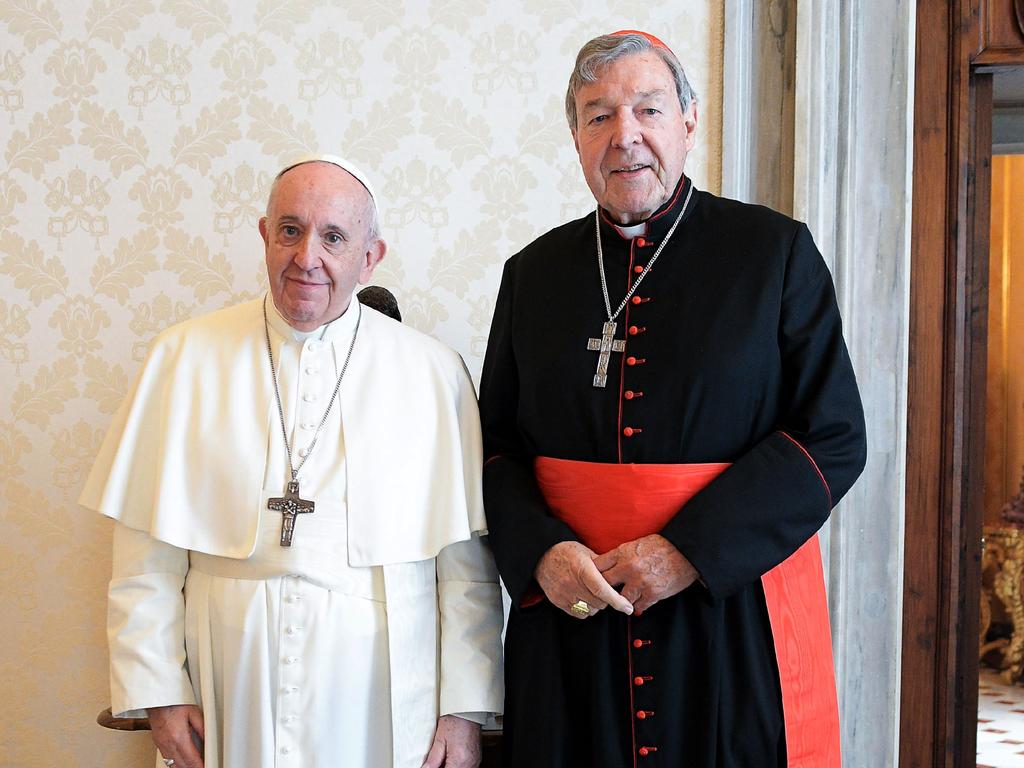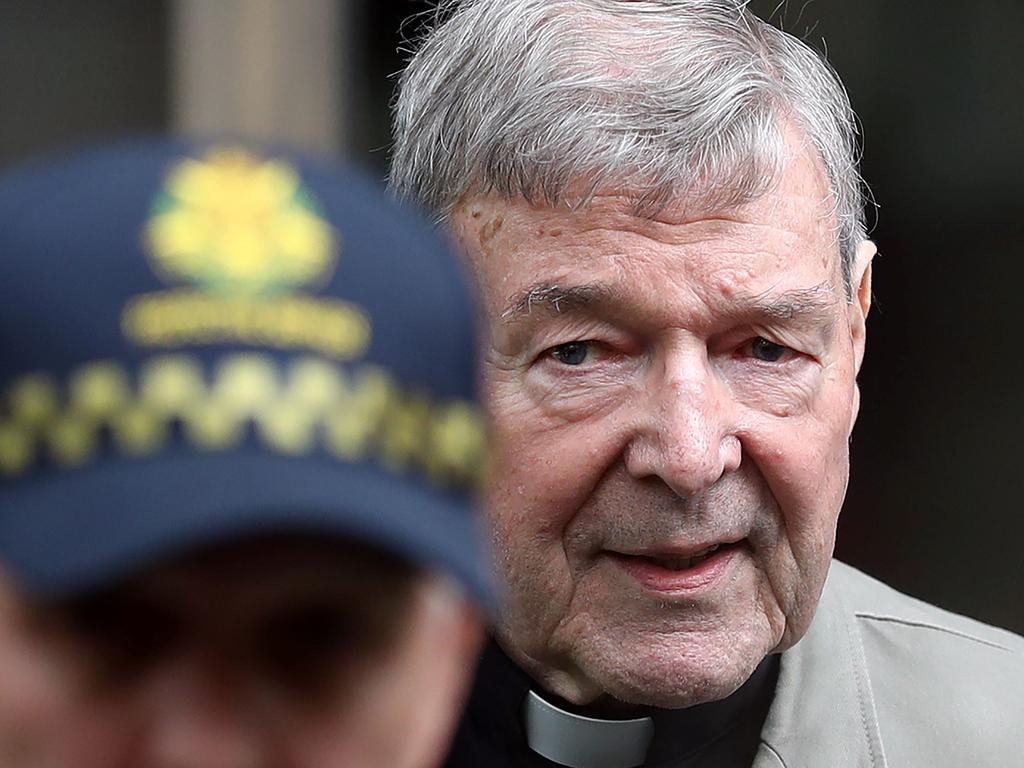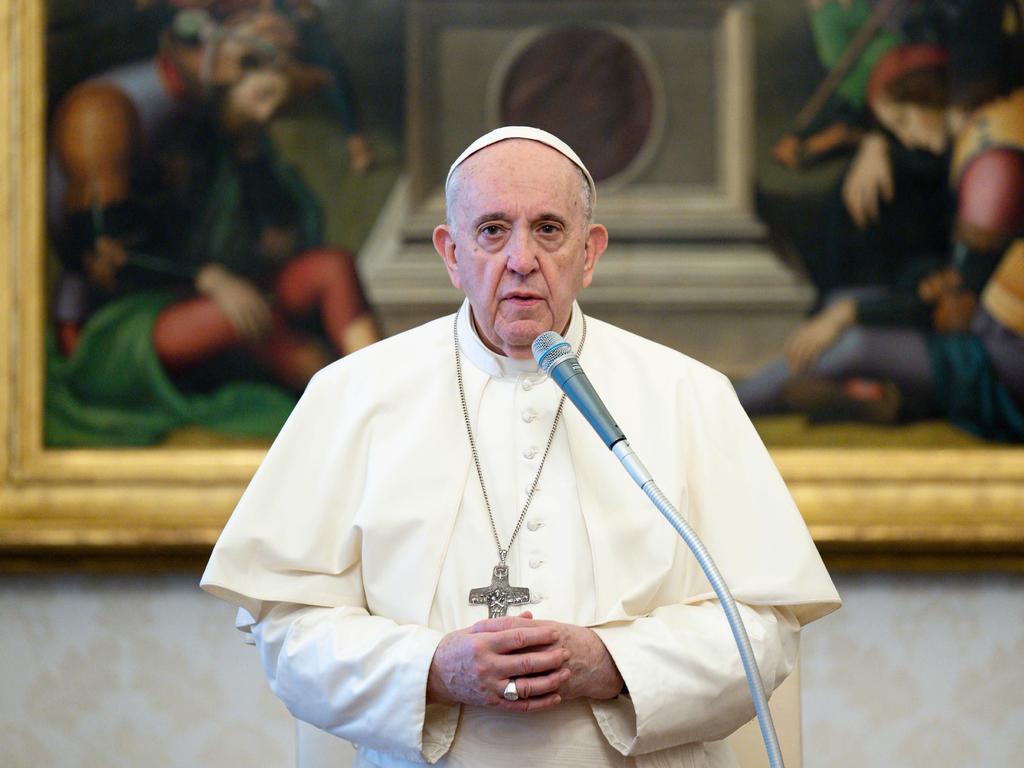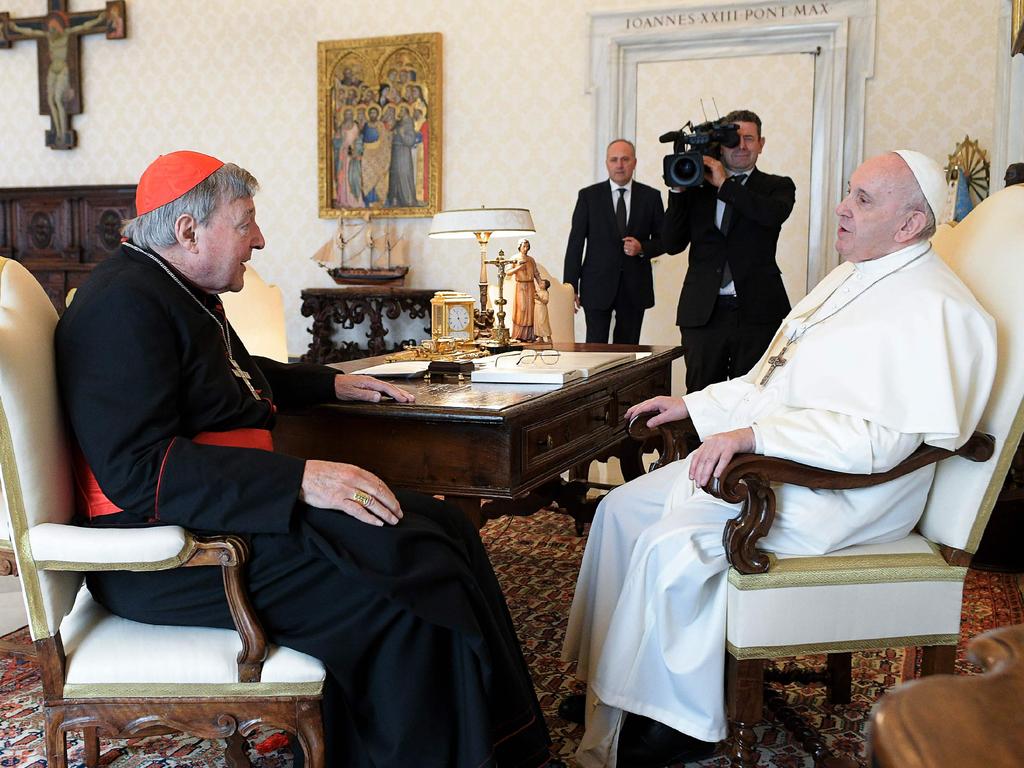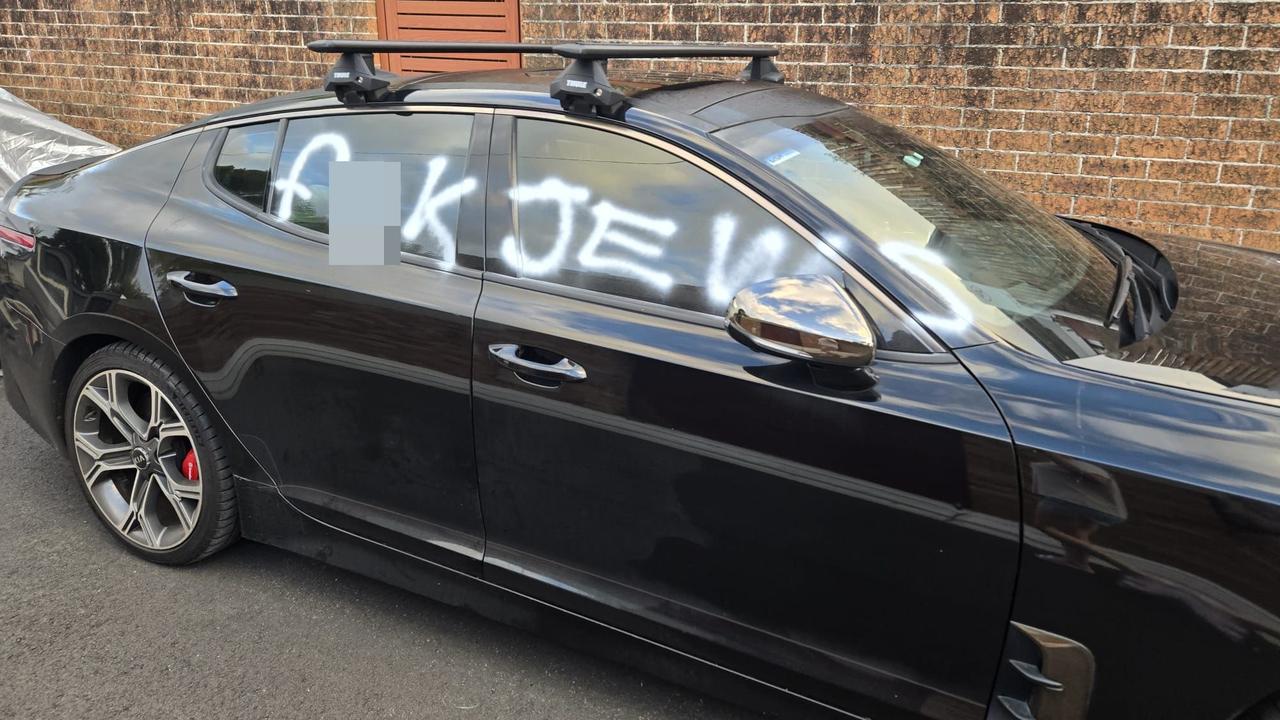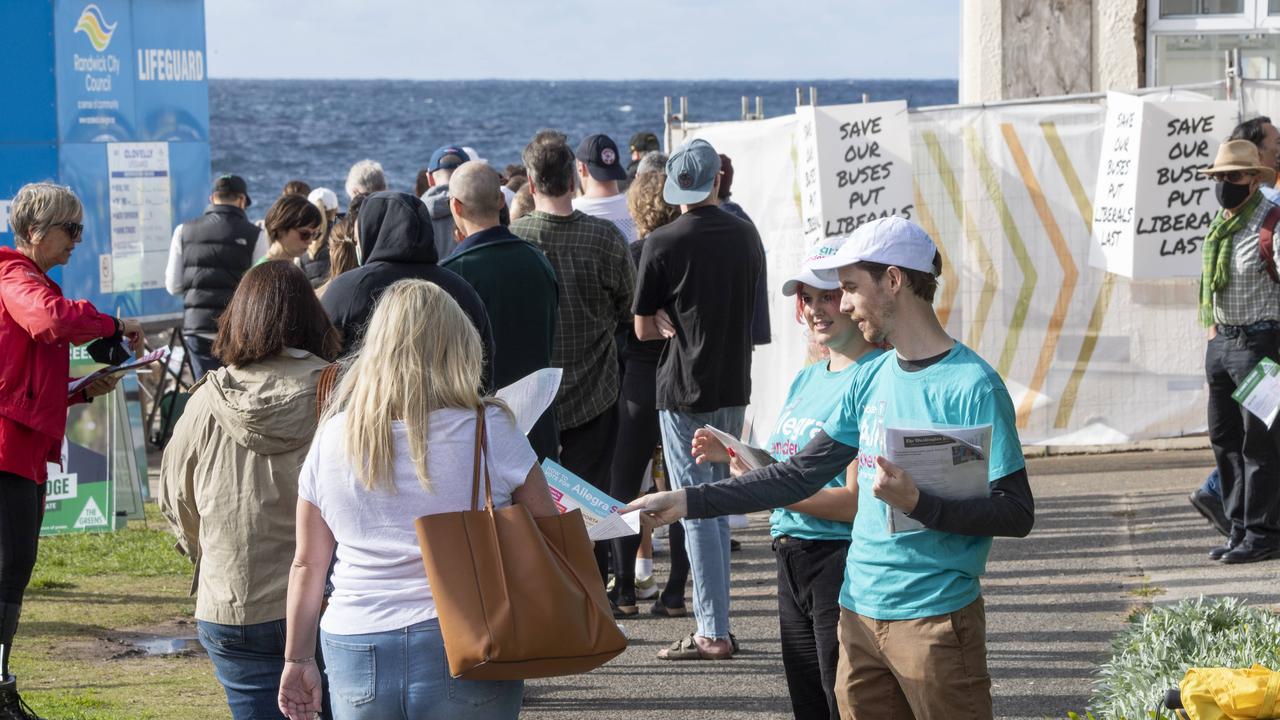George Pell ‘vulnerable, spied on’ in Vatican cash battle
Before he was charged with sex abuse, opponents of George Pell’s clean up of Vatican finances went to frightening lengths to stop him.
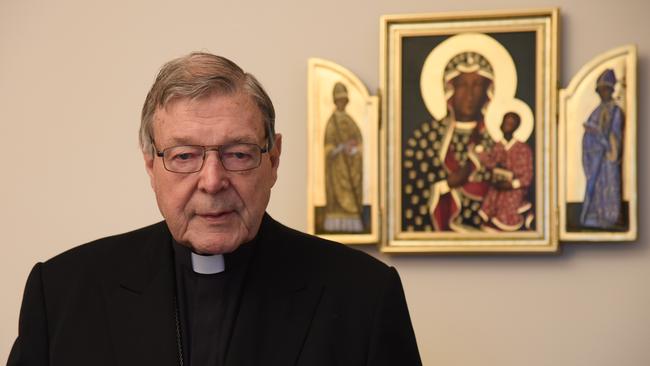
Opponents of Pope Francis’ push to clean up Vatican finances applied unprecedented psychological pressure and created a climate of fear in their attempt to stop George Pell and his allies investigating Swiss bank accounts which allegedly held more than $300m, according to a book chronicling events preceding the Australian cardinal’s downfall.
Senior officials working for the Vatican’s financial oversight body set up to examine misconduct concluded one break-in at the organisation’s headquarters was meant as a warning, after little was stolen except documents relating to a murdered banker.
Anxiety levels were so high that officials involved in the financial reform process felt “vulnerable, observed, spied on”, Italian journalist Gian Luigi Nuzzi — who has covered decades of financial intrigue in Rome — writes in The Vatican’s Black Book.
“The theory that this was an intimidatory act was also accepted at the most senior levels when the news was relayed to the Pope and to Pell who had only been in his new post a couple of weeks,” Nuzzi writes in his book about the months after Cardinal Pell took over the role of reforming the Vatican’s finances in 2014.
The internal workings of the Vatican have come under close scrutiny in recent months after Italian newspapers and The Times of London reported on the lavish lifestyles by high-ranking officials including Cardinal Giovanni Angelo Becciu, a well-known rival of Cardinal Pell.
Cardinal Becciu, who was sacked earlier this year, has strongly denied those reports.
Cardinal Pell was charged with multiple sexual offences in June 2017 and convicted of five charges by a Melbourne jury the following year. But the High Court overturned those convictions in April, and Cardinal Pell has since returned to Rome.
Cardinal Pell’s private secretary, Mark Withoos, Nuzzi writes, was warned his boss might be being tailed, forcing him to report the matter to security. Cardinal Pell told Father Withoos, who is Australian, that people needed to have “nerves of steel” and that it might be part of a psychological war to unsettle efforts to deal with Vatican finances.
The book also details an incident soon after Cardinal Pell became the head of Vatican finances in which documents relating to the 1982 murder of the Vatican banker Roberto Calvi were stolen from the head office of the organisation heading the reforms.
Nuzzi claims that after the break-in, Vatican security had found part of the dossier of papers stolen from the archive in the pigeonholes used for the Vatican Prefecture, most relating to missives between key figures in the 1970 Vatican Bank scandal that resulted in the death of Calvi, who was found hanged from London’s Blackfriars Bridge in 1982.
Nuzzi writes the break-in and theft was seen by the Vatican as a mafia-style message not to look into the finances or intervene in the existing arrangements. The 835-page book also says that in 2016 Cardinal Pell had detailed how he believed that up to $11bn belonging to the Vatican could be held in foreign banks; he came to this view after meeting Australian bankers in London.
It describes Pope Francis’ decision to promote Cardinal Pell as flawed, particularly as he had knowledge of the allegations against the Australian at the time.
According to Nuzzi, Cardinal Pell flew to London in October 2016 and on his return met with Danny Casey, the former business manager of the Sydney archdiocese and a prominent Australian Catholic. “I’ve been in (London’s financial district) and I met with some friends, Australian bankers,” Cardinal Pell was reported as saying at the time.
“They confirmed to me that there are important funds belonging to the Vatican which are still hidden in Switzerland.”
Allegations of sexual abuse levelled at Cardinal Pell have long been linked by supporters with conspiracy theories that the prosecutions were related to the battles he fought in Rome against forces resistant to reform. No evidence has been forthcoming to substantiate those claims.
The Australian reported in October that anti-corruption authorities were looking into money wired from the Vatican to Australia — Italian newspapers La Repubblica and Corriere della Sera said Vatican investigators suspected the money was used to derail Cardinal Pell’s trial.
The Vatican investigation is also looking into the purchase of a $363m London property, while a 39-year-old woman working for Cardinal Becciu was arrested earlier this year over allegations of unauthorised payments.

